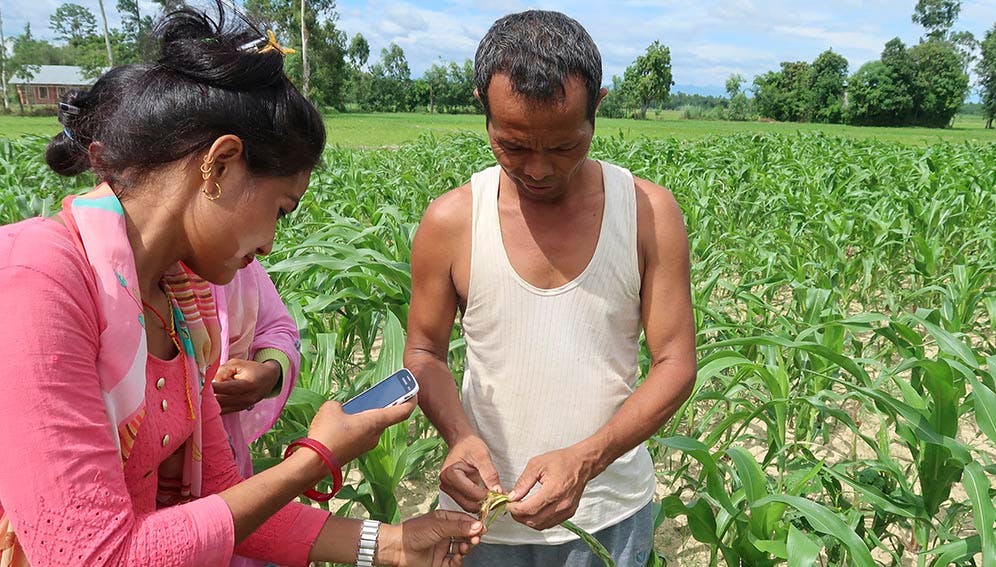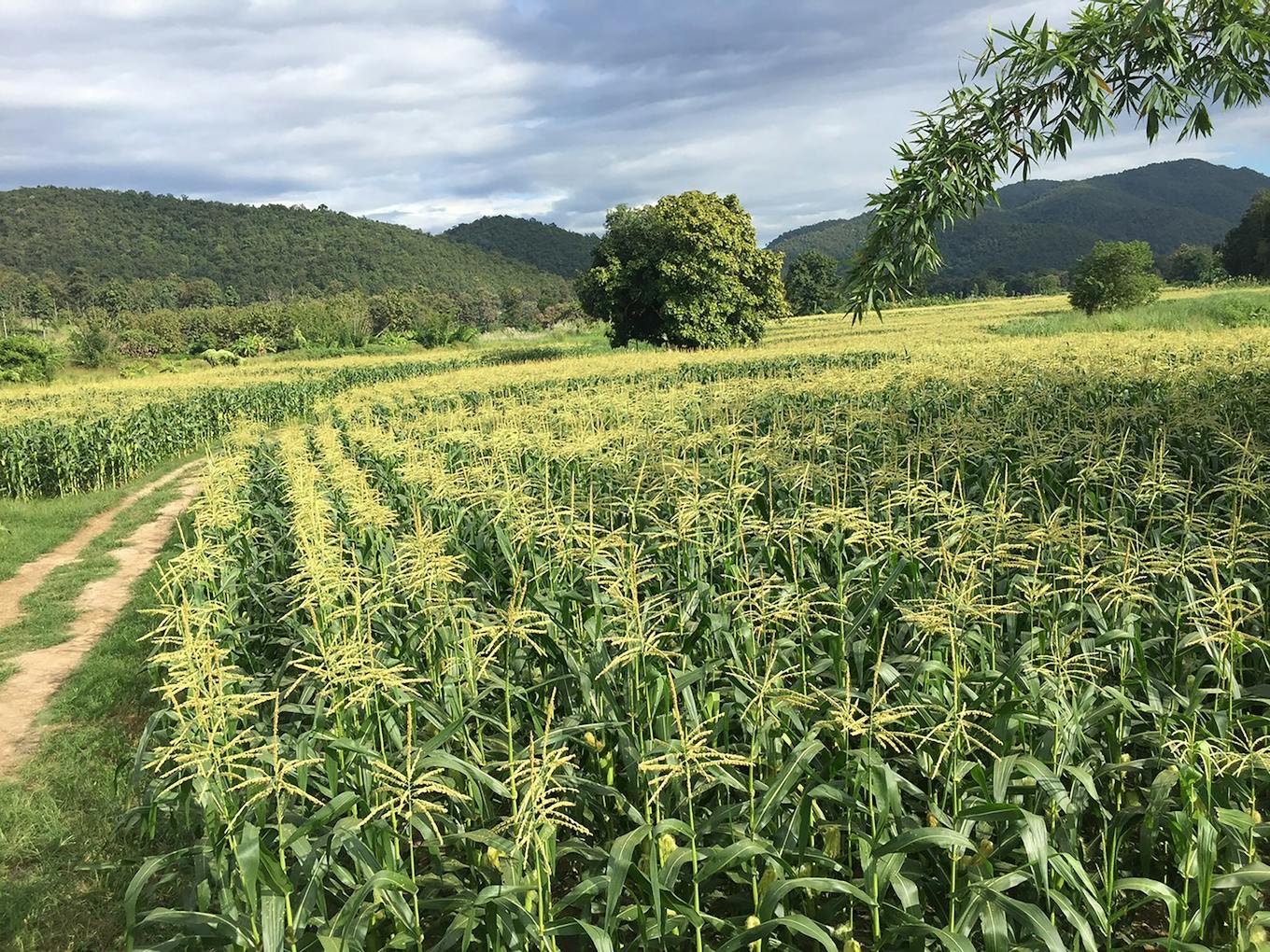A question corporate sustainability officers will have been asking themselves this year is, does my company value its environmental and social impact enough for my job to survive a pandemic?
To continue reading, subscribe to Eco‑Business.
There's something for everyone. We offer a range of subscription plans.
- Access our stories and receive our Insights Weekly newsletter with the free EB Member plan.
- Unlock unlimited access to our content and archive with EB Circle.
- Publish your content with EB Premium.
For many companies in Asia Pacific and elsewhere around the world, the answer seems to be: no.
The Covid-19 virus has led to record unemployment rates across the region and cash-strapped corporations, particularly in sectors such as services, have taken an axe to sustainability teams.
Of the reported casualties so far this year, Hilton Hotels lost its APAC head of sustainability, and IKEA parted ways with its Southeast Asia sustainability head, although the furniture retailer claimed this was because the sustainability function is now so embedded that it no longer needs one.
While all companies are taking hits, an indicator of a company’s “principles” is whether job cuts have been uniform across the company, and not more heavily felt by the sustainability department, said Dr Simon Lord, the former chief sustainability officer of palm oil company Sime Darby Plantation, who left the role in August.
“
If companies approach sustainability as an add-on to what their business does, it will be one of the first things that gets cut in tough times.
Steve Newman, group sustainability director, Banyan Tree Hotels & Resorts
The Kuala Lumpur-headquartered Sime Darby Plantation has made staff cuts and said a “prioritisation process” led to its exit from the forest conservation framework High Carbon Stock Approach in June.
“It’s not surprising that sustainability teams are being cut,” said Thomas Milburn, Southeast Asia director of sustainability consultancy Corporate Citizenship. “While sustainability can save cost and drive efficiencies, some sustainability work will be seen as a cost in the short term. The reality is that for a lot of businesses right now, thinking long-term is hard to do.”
Has the pandemic affected sustainability commitments?
The virus has forced companies to think about where their priorities lie.
“When the [infection] numbers went crazy, I realised that it wouldn’t be a wait-and-see thing. We had to redesign everything we’d planned for the year,” said Luanne Sieh, who was appointed to run Malaysian bank CIMB’s new sustainability function in 2019.
Since last year, CIMB has given business managers sustainability targets, such as finding green bond opportunities or securing investments in renewable energy. But when Covid-19 hit, these key performance indicators gave way to other priorities.
“We were trying to help customers who’d lost their jobs restructure loans,” said Sieh. “We were trying to help small firms from going out of business.”
The bank’s sustainability team helped to devise a bereavement programme for people who’d lost family members to the virus and a support package for small- and medium-sized businesses.
“We stepped up. Covid has been an opportunity to show why sustainability is important,” said Sieh, who noted that until last year, the bank’s sustainability efforts were limited to corporate social responsibility (CSR) projects.
“You can’t do sustainability on the side. Well, you can. But then it’ll always be on the side,” said Sieh, whose company plans to introduce a climate policy by the end of this year, in the wake of a hard-hitting campaign by environmental campaigners.

Luanne Sieh, head of sustainability at Malaysian bank CIMB, explains the meaning of the logo for the Cooler Earth Summit, the bank’s sustainability conference. The logo depicts the history of global warming in the form of ‘climate stripes’.
Global catering and facilities management firm Sodexo has seen a revenue drop of 28 per cent since the start of the outbreak, with a US$2.2 billion impact on sales expected by the end of the year. Sodexo’s food services business, which has been hit particularly hard, has rolled out strict safety measures that have disrupted commitments to reduce food waste and single-use plastic.
“Contamination could shut down our business. We have had to use gloves and masks [when serving food]. Are we using more disposables than before? Yes. But this is the world we live in now,” said Roshith Rajan, Sodexo’s director of corporate responsibility for Asia Pacific. His company has committed to phase out single-use plastic by 2025, but the pandemic has made hitting this target tricky.
“The virus has taken progress the world has made on disposables back a few years,” said Rajan, adding that Sodexo has had to be cautious and not allow customers to bring their own reuseable containers, despite a recent study from health experts that dismissed the contagion threat of reuseables.
“
You can’t do sustainability on the side. Well, you can. But then it’ll always be on the side.
Luanne Sieh, head, group sustainability, CIMB
Sodexo had committed to reduce food waste across all of its sites globally by 50 per cent by 2025, and had saved the equivalent of 4.8 million meals since the programme was introduced in May 2019. But dramatic fluctuations in demand and the rise of grab-and-go meals in place of plated options has greatly increased food waste at more than 100 sites still in operation in the region, noted Rajan.
For agribusiness giant Olam, the virus has prevented sustainability officers from getting out into the field, and a number of projects are on hold. Its Jakarta-based vice president of corporate responsibility and sustainability, Moray McLeish, hasn’t been in the field in six months.
Though the downtime has given him and his colleagues more time to plan new projects, it is getting increasingly difficult for McLeish to do his job, which includes a project to protect one of South Sumatra’s last tracts of lowland forest from encroachment from coffee farmers.
Covid-curbing measures have meant a 50 per cent reduction in daily staff numbers in Olam’s coffee warehouses, to allow for safe distancing. But a pandemic-related shift in demand from pricier coffee, which requires more quality control and therefore more people, to lower quality 3-in-1 coffee, has meant that Olam has managed to meet demand with fewer staff. “But that won’t go on forever,” noted McLeish.
Olam’s sustainability team has weathered the pandemic so far. This is due to the company’s corporate structure: Since most sustainability staff are embedded into business units, they have commercial responsibility which insulates them from shocks like pandemics.
“They’re [sustainability staff] difficult to let go when times are tough, as they’re delivering what customers are asking for,” said McLeish.
Could Covid be an opportunity for sustainability officers?
Though the pandemic has squeezed budgets and left some sustainability officers without jobs, it has shown some businesses where the opportunities lie.
“More people are now asking how their food was produced, and if the farmers got a good deal,” said McLeish. “There’s an opportunity for us [sustainability officers] to capitalise on that sentiment.”
A silver lining of the pandemic has been the digitalisation of supply chains and building stronger connections with farmers, he noted.
A survey conducted by the company in July found that more than half of smallholder farmers growing cocoa, coffee, sesame and cotton in Africa and Indonesia were short of food due to movement restrictions and food price increases. Olam is mapping the survey findings to identify hotspots where farmers may be most vulnerable, so relief can be provided to these areas.
Using digital tools, the company has provided 60,000 cocoa farmers in Indonesia with information about how to prevent the spread of the virus, that they hadn’t been able to get through conventional channels.
“We’re now investing more in how to have a two-way conversation with farmers to understand what they can deliver to us and of what quality, and to feed back information to farmers about how to stay healthy,” said McLeish.
The pandemic has also been an opportunity to collaborate with new partners. “We’ve struck up partnerships we wouldn’t have conceived of before that have strengthened our supply chains,” said McLeish.
These connections build resilience and give the company a competitive edge to withstand future shocks, he said.

A farmer using a digital platform that enables sustainability officers to send health and nutrition information. Image: Olam International
Carolyn Mortland, Auckland-based director of global sustainability for dairy giant Fonterra, said her company has been mostly unaffected by the pandemic. Even under strict lockdown conditions in New Zealand, the food supplier was considered an essential service and could operate as normal. “We could still milk the cows,” she said.
Likewise, the company’s sustainability programmes—which include finding ways to rein in its greenhouse gas emissions, improve productivity and minimise waste—have persisted, and Fonterra has had the opportunity to have impact beyond its usual remit of community and farmers.
Responding to an urgent request from a medical nutrition company, Fonterra was able to commission a plane to fly whey protein into a country whose hospitals needed the fast-absorbing protein to treat Covid patients.
“The pandemic has bought into stark contrast who you are and how you act as a company,” she said. “People look at how you show up.”
The virus has set apart companies that understand the value of sustainability from those that don’t, said Dr Steve Newman, group sustainability director of Banyan Trees Hotels & Resorts.
While the Singapore-headquartered luxury hotel group has laid off workers like many of its hospitality industry peers, it has not dismantled its inhouse sustainability unit, Banyan Tree Global Foundation, of which Newman is the coordinating director.
Many companies, Newman noted, have been “reactive” in their response to the pandemic, rushing in with CSR-like initiatives such as distributing face masks and hand sanitiser, and overlooked more enduring opportunities.
“It’s the less apparent things that present the opportunities. Everyone has been panicking about the lack of economic activity. But over the longer term we see opportunities in our supply chains to increase resilience,” said Newman.
As soon as the virus disrupted trade, Banyan Tree shortened its supply chain and shifted to more local food suppliers. In June, it branched out into agro-tourism, opening a gourmet organic farm in Chiang Mai called ORI9IN, in partnership with a chef-turned-sustainable farmer.
Newman said that Covid-19 should be a chance for companies to review their sustainability ambitions and the issues that are material to them, and see if there are more far-reaching opportunities to achieve impact beyond their own operations.

Sweet corn growing on the ORI9IN farm in Chiang Mai, Thaland. Image: ORI9IN
How has Covid changed the sustainability officer?
For the rest of 2020, corporate sustainability officers will be thinking about how their job has changed. For some, it has meant more responsibility as the pandemic has reshaped what sustainability means to the business.
Rajan has been tasked to coordinate a strategy to get Sodexo staff and client projects back on course as Covid movement restrictions ease. Called Rise with Sodexo, the initiative will see work and client projects resuming with high health, safety and sustainability standards.
Not only has his role expanded. So has the visibility of sustainability within the company. “We’ve never seen this level of engagement [in sustainability], particularly among mid to senior-level staff,” Rajan said of company townhalls with chief executive Denis Machuel.
The role of the sustainability chief has also shifted at CIMB. Sieh’s sustainability team sits in the strategy department, but since Covid-19, her team has moved closer to the risk team, as the long-term threat of events like Covid-19 become more apparent.
“What was the risk of Covid? There was always a risk of something like it happening, but it was small and remote. People didn’t realise that it could hit us so badly. Climate change is the same, except it’s much more certain, actually — and the impact will be much greater.”
“You can see clearly the companies that have been prepared for a crisis like Covid are doing much better now,” said Sieh.
“
The pandemic has bought into stark contrast who you are and how you act as a company. People look at how you show up.
Caroyln Mortland, director, global sustainability, Fonterra
Patricia Dwyer, the former corporate director of CSR and sustainability at Shangri-La Hotels & Resorts, said that the business case for sustainability has strengthened in companies that see risk evaluation as not only a job for lawyers and auditors.
“In these companies, a sustainability officer is seen as a resource that is far too valuable to lose” as the threat of issues such as climate change come into clearer focus, said Dwyer, who now runs sustainability consultancy The Purpose Business.
She also noted that Covid-19 has elevated the ‘S’ in ESG [environmental, social and governance], as corporates try to figure out how to keep their staff safe during a pandemic. This has pushed the sustainability officer’s role closer to that of human resources, she said.
“Health and safety are not just for construction companies,” she said. “Companies are always saying that their people are their most important asset — they need to show they mean it. The pandemic has shown how vulnerable people can be.”
Covid should also show how sustainability officers can protect their companies in an uncertain future. “This pandemic should open every businesses’ eyes to the externalities beyond our control that could stop us from operating,” said Newman.
“We don’t always know what to do. Businesses tend to look internally for solutions. We need to look externally more. This pandemic has shown how connected and interdependent we all are, and how we depend on society to function,” he said.
This story is part of Eco-Business’ series on chief sustainability officers. Eco-Business is searching for the most influential sustainability officers in Asia Pacific as part of its A-List programme. Nominate a sustainability officer who has made a major impact on their business over the last 12 months here.








